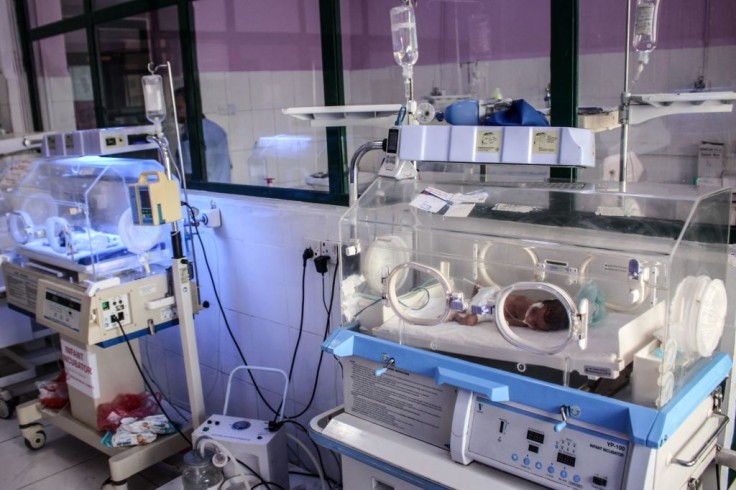
Harper Jacobo, a premature baby, born with an incomplete esophagus, is the smallest ever to survive with that medical condition. Harper and her sister Gabriella weighed just one pound (0.45 kilograms) when they were born at 23 weeks back in February 2021 in Alliance, Nebraska.
After birth, the Jacobo twins were rushed 250 miles to a specialist at Rocky Mountain Hospital for Children in Denver, Colorado. According to a report by the Daily Mail, doctors there found that the tube between Harper's stomach and mouth had failed to connect.
Doctors at Rocky Mountain Hospital carried out Harper's surgery, using magnets to successfully bring the two parts of her esophagus together. Dr. Steven Rothenberg, the chief of pediatric surgery at the hospital, said that Harper was the "smallest baby ever to be born with this [condition] to survive."
What is esophageal atresia?
Harper's condition, known as esophageal atresia, happens when the upper and lower part of the esophagus fail to connect. About one in 4,100 babies are born with this condition in the United States, although most babies survive it.
It is unclear what causes esophageal atresia, but scientists have suggested that the medical condition could be down to genetic abnormalities. They have found that many sufferers of esophageal atresia also have problems with their heart, kidneys, and digestive system.
"It worked extremely well!" 💛 Parents Kayla Hatch and Victor Jacobo credit the medical workers for saving Harper, who was born with an incomplete esophagus.
— Queen City News (@Queen_City_News) April 11, 2022
HER STORY ➡️ https://t.co/Itx5SDMDf6
Harper and her twin sister Gabriella were born in February 2021 at the earliest age from which premature babies have been known to survive outside the womb. After doctors transferred Harper to the specialist hospital, medics there waited four more months before they were able to carry out her delicate surgery.
Doctors at Rocky Mountain Hospital did not say how baby Harper was fed during this time. Fox4KC reported that doctors used a magnetic procedure after the initial surgery to bring Harper's esophagus together. Her road to recovery was a grueling one, with Harper spending the first year of her life in hospital receiving treatment before she was finally discharged.
Dad Victor Jacobo emotional while thanking Harper's doctors
Fortunately for Harper's twin, Gabriella, she was not born with the birth defect that affected her sister. Gabriella was discharged earlier into her family's care. Parents Kayla Hatch and Victor Jacobo have thanked the doctors for keeping their twin babies alive.
Jacobo was emotional when talking about her twins and the doctors who helped them, saying, "To see them breathing, kicking, it's just truly awesome." He added that they couldn't thank everyone enough for being there and helping them through these trying times. Jacobo said for the rest of his life, he is going to be thanking them.
Babies have been known to survive outside the mother's womb from 23 weeks of age, although they need high levels of medical care for them to live. According to the CDC, esophageal atresia is usually detected within the first few days of a baby's life and can also be diagnosed in the womb from 23 weeks of age. Studies show that almost all babies diagnosed with the medical condition survive.